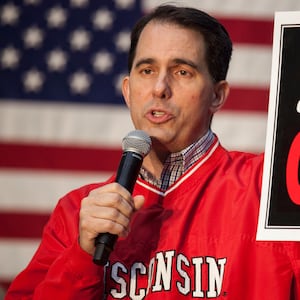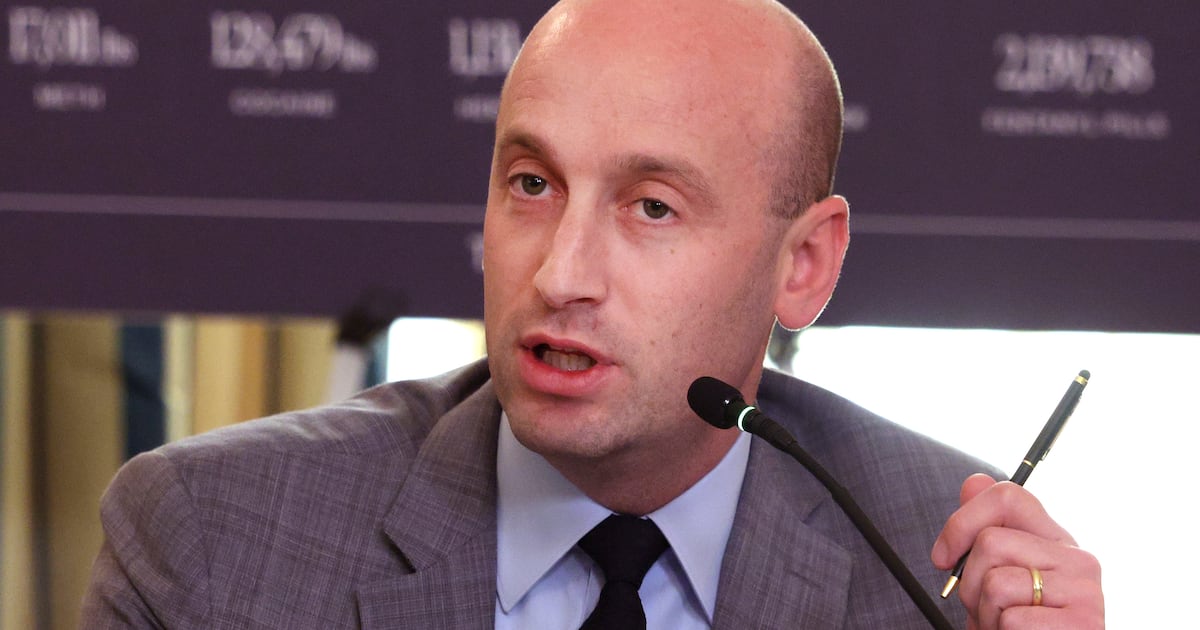If North Carolina’s congressional election were an episode of House of Cards, it would be laughed off the air. Unbelievable, you’d say. Preposterous.
And yet, in that state’s Ninth District, which runs along the border with South Carolina, truth is indeed stranger than fiction: ballot “harvesting” by a shady operator with years of suspicious activities, a fire-breathing pastor who hired said operator but now claims to have had no idea what that operator was up to, and, to top it all off, a state Republican party that is working furiously to solve a voter-fraud crisis that doesn’t exist while trying to shut down an investigation into one that does.
The Ninth District has been represented by a Republican in congress since 1963. The incumbent is Robert Pittenger, a fairly staunch conservative who, among other things, said that the people protesting a 2016 police shooting in Charlotte “hate white people because white people are successful and they're not.”
In last year’s primary, Pittenger lost to an even more conservative candidate, Pastor Mark Harris, who has said that Islam is the work of Satan and that Muslims “bow down to the image of the Beast.”
Yet something was suspicious. In rural Bladen County, Harris won 437 absentee votes to Pittenger’s 17. According to the Washington Post, Pittenger blamed his close loss on “ballot stuffers in Bladen.”
There was apparently one ballot stuffer in particular: Leslie McCrae Dowless, who worked for the Harris campaign both in the primary and subsequently in the general election. Dowless is well known in Bladen County, and had been investigated at least once.
His modus operandi is all about absentee ballots. First, state investigators told the Post, he goes door to door telling people that their voter registration has lapsed and they must apply for an absentee ballot instead. Then, something happens to those ballots, and a huge number of absentee ballots are requested but not returned. Still others were apparently “harvested” from voters instead of mailed, and then tampered with or destroyed.
Somehow his clients have registered lopsided victories in absentee ballots over the past 10 years, even when they barely win or outright lose the overall election.
Pittenger told the Post that Dowless approached him in 2016, “but I just knew I didn’t want to be involved with him… Dowless’s efforts were widely known.”
In 2018, Pittenger’s own aides counseled him to hire Dowless and give him nothing to do, simply to prevent him from working for an opponent. Pittenger declined to do that, and Dowless went to work–via a consulting firm–for Harris. That firm was paid $400,000 by the Harris campaign.
After the primary loss, Pittenger says he reported his suspicions of fraud to the executive director of the North Carolina Republican Party and a regional political director for the National Republican Congressional Committee. Neither group did anything.
Flash forward to the general election, with the extremist Harris now up against Democrat Dan McCready, a former Marine. Harris won that election by 905 votes out of nearly 250,000 cast, but amid new evidence of fraud in Bladen and neighboring Robeson counties, the state board of election refused—in a unanimous vote of the bipartisan board—to certify the election.
The direct and statistical evidence is compelling.
First are the unreturned ballots. The Robeson County elections commissioner said that they had evidence of someone going door to door lying to residents that their voter registrations had expired and having them fill out absentee ballot request forms; 62 percent of those absentee ballots were subsequently not returned.
Meanwhile, in Bladen County, 7.5 percent of voters requested absentee ballots, more than double the state’s average of 3 percent, and 40 percent of those ballots were unreturned.
All of this matches up neatly with how Dowless is alleged to operate.
In total, across the Ninth District, over 3,400 absentee ballots were requested by voters but never returned. That number alone is three times the margin of victory.
Second are the strange margins among the ballots that were returned.
In Bladen County, 61 percent of absentee ballots went for Harris, the Republican, even though the county is only 19 percent registered Republican. Moreover, according to data crunched by veteran North Carolina political analyst Michael Bitzer, there aren’t enough independents to make up that gap even if they all went for Harris.
How could that have happened? There is now mounting evidence that absentee ballots had been harvested (i.e. collected) and tampered with. Buzzfeed has reported that workers paid by Dowless in Bladen County collected sealed absentee ballots, gave them to Dowless, and kept track of the number of ballots returned by Republicans and Democrats. And the Raleigh-based News and Observer has found several individuals who say that Harris campaign workers offered to mail their ballots for them.
This week, McCready withdrew his concession in the race, saying that Harris knew Dowless was a crook but hired him anyway, thus bankrolling “criminal activity.”
The current state of play is that the state board of elections has set a hearing for Dec. 21 to evaluate the evidence and make a final decision either validating or nullifying the election results. They’ve released a trove of documents already.
But it’s the conflicting responses from state Republicans that are the cherry on the top of the corruption sundae.
First, Republicans have charged ahead with their plans to solve a nonexistent voter fraud crisis by passing a Voter ID law. According to the News and Observer, “an audit of 4.8 million votes cast in the 2016 election found all of one (1) instance of in-person voter impersonation that could have been prevented by photo identification.”
In exchange for that one vote out of 4.8 million cast, voter ID will make it harder for thousands of North Carolinians to vote—disproportionately less affluent and less white voters who, of course, vote disproportionately Democratic.
It’s unknown whether Governor Roy Cooper, a Democrat, will veto the bill. If he does, Republicans have a veto-overriding “supermajority” in the outgoing state house and state senate—both of which they lost in the midterm elections. That means that they, like legislatures in Michigan and Wisconsin, can buck the will of the people by passing controversial legislation in a lame-duck, sore-loser session.
More importantly, while fighting a fraud crisis that doesn’t exist, Republicans have sent mixed messages about the one that clearly does exist in Bladen and Robeson counties.
As of Dec. 6, Republican state legislators want to end the bipartisan election board’s investigation, and hand it over to a newly created task force that would have as its mandate not just the 2018 election but the “troubling allegations [that] have been leveled literally for years in Bladen,” in the words of Republican State Senator Dan Bishop.
In other words, they want to change the subject. Away from a disputed election that is in question right now. Away from a serial crook faking absentee ballots. Away from a Republican candidate who hired him despite his reputation. And most of all, away from a state Republican party that was warned about him and did nothing.
And toward? Toward the board of elections itself, to which Republicans are shifting the blame for ignoring allegations against Dowless over the years. And toward unspecified voter fraud that Democrats committed in the past.
The executive director of the state Republican Party, meanwhile, told CNN that he would support a new congressional election if the allegations of fraud turn out to be true, and sufficient to have impacted the race.
Even in the age of Donald Trump’s hair weave, these machinations seem too crazy to be plausible. The characters are too extreme to be believable. And while politics and hypocrisy have gone hand in hand for millennia, the spectacle of state legislatures willing to suborn outright, old school election-rigging is just too outrageous to be credible.
Welcome, almost, to 2019.








